How to Kill Writer's Block Once and For All
I never get writer's block. I can't remember the last time I sat down to write and couldn't think of anything to write about. It just doesn't happen to me.

Image from Pixabay.
Now, I don't mean to drive an ice pick into your eye, but it's the truth. I write every day, and the words never seem to stop flowing. A lot of what I write is client work. As a freelance writer, I am tasked with writing--either under byline or as a ghost--blog posts, articles, white papers, case studies, pitch decks, e-books, and a host of other content products on a regular basis. Aside from that, I have my own personal writing interests that include poetry, fiction, creative nonfiction, and other mental collateral. I never just sit and stare at a blank page, and it's because of one little writing secret that I have kept close to my chest for a number years. What's my secret?


What I Could Have Written About Today
That's right. I ward off writer's block before it ever has a chance to show itself by maintaining an abundance of ideas. My struggle, quite often, is in deciding what to write about. It isn't not thinking of something to write about.
See the difference?
With writer's block, the writer struggles with putting words on the page because she can't think of anything to write about. But I never have that problem because I've always got something to write about. I just have to decide what I'm going to write about each time I sit down to write.
For instance, for this blog post, I could have written about any of the following:
- My amazing weekend with my grandson Nathen and my wife
- Since I didn't blog over the weekend (because of my amazing excursion with Nathen and my wife), I could have posted a fictional story (I have quite a few of these just lying around) like I usually do on Saturdays
- Or, I could have posted my usual Poetry Sunday post today instead
- I could have posted a reminder that tomorrow is the deadline for the farmpunk fiction contest
- I could have wrote and published a story for this week's Steem Monster fantasy story contest
And these five ideas are just off the top of my head. This doesn't account for the idea file I keep on hand that I can often revisit to find something to write about.
How to Maintain an Abundance of Ideas
 Image from
Pixabay
Image from
Pixabay All you have to do is go through your list of ideas and find one that is appealing to you right now. Then, you start writing.
The thing to keep in mind about idea files is this: The items you keep in it are just ideas. Nothing more. And the thing about ideas is this: They are all at various stages of development. Some ideas may simply be sketches. For instance,
Write about a space colony where the inhabitants survive by siphoning the atmosphere from other planets.
There's an idea that is nothing more than a sketch. There are no other details to help me out. It's just an undeveloped story idea with no outline, no character development, no plot notes, or anything else. All of that is yet to come. But, it's a good starting point. If I come across an idea like this in my idea file, I have to decide if I'm ready to invest my time in the development of the details to make this story idea succeed. If not, I move on to another idea.
Other ideas may be partially fleshed out in the form of a summary. Here's one:
Deep in the core of planet earth is a buried city. A group of scientists and a child prodigy set out to learn everything they can about this city. They must figure out a way to excavate the earth to allow for their safe travel from the surface to the core, how to protect themselves from its immense heat, how long to stay, and what to do when they get there. But the trouble they find along the way is more than they ever dreamed of.
Now there's a little bit more information. It's not quite a detailed outline, but it's a good story summary. I still have to create character profiles, flesh out the plot a little more, create the obstacles to their success and go into detail about the actual conflict. It's do-able, but am I ready right now to flesh all of that out? If not, I move on.
Some ideas are simpler - A short story about a three-headed midget mutant and his friends. (I actually wrote this one). Others are more complex. I'm sure you get the idea.

Copyright 2013 by Allen Taylor
To keep an idea file, all you need is a notepad (physical or virtual) or a spreadsheet. I usually keep mine in Windows Notepad. It's easy and allows me to write as much or as little about each idea as possible. Microsoft Word or OpenOffice work just as well. On a Mac, you have similar tools. Some writers use Microsoft Excel or something similar. Other writers use market tools like Scrivener. Whatever works for you.
Where Do You Find Ideas for Your Idea File?
Now that you have an idea file, where do you find ideas to put in it? It's not as hard as it seems. If you get a lot of ideas, you should start writing them down.
Every time I get a new idea (which is multiple times a day), I put it into my idea file. Most times, I'm not ready to act on an idea. It's just an idea. I'll flesh it out later.
It could be that I don't have the time at that moment to work on it, or it could be that I'm already working on other ideas and will come back later to this new idea. But, honestly, I have so many ideas that I'll never get to them all. And that's why it is sometimes difficult to pick something to write about. There are so many ideas to explore, I can't possibly explore them all. And that's okay because I'll at least always have something to write about.
So where do these ideas come from? Here are some ways I get ideas:
- Observation - When I'm out and about, I pay attention to other people. What are they doing, what are they saying, who are they with, what are they wearing, and why is it important? I take note of as much detail as possible and when I get to where I am able, I write it down. Sometimes, ideas for stories come on the spot. Other times, they come later.
- Reading - Reading short stories, poems, novels, newspaper and magazine articles will often spark an idea for a story--either fictional or nonfiction.
- Personal experience - What happens to me or people I know can often become fodder or story material.
- Dreams - Sometimes, a dream can be so vivid that I have to write it down. It can become a story or a part of a story.
- Memories - At other times, memories of past events or things I've witnessed can be good story material.
You may come up with other ways to develop ideas. Anything is possible.
One final thing to say about ideas is this: Not every idea need enter a story or article exactly as it comes to me. I'm a writer. I'm free to create. The ideas are jumping off points. I can take some big leaps sometimes.
For instance, I was sitting around one day thinking about all the ways people jack things up. It made me think of some people I know who are always trying to control things. You may know a few yourself. They want to control every detail of every event that involves anyone at all, and the more they try to control things the more they jack things up. So I came up with this character called Dr. Franklin Benn (reverse the names for a real person's nomenclature) who, through his scientific experiments, was flubbing the universe.
"Flubbing the Universe" is only published in audio form online, not in text. So you'll have to listen to Christopher Boyle read the story on SoundCloud, and he does an awesome job. But be prepared, it's no childrens story.
Anyways, I hope I've given you something to think about. Create an idea file. Drop every idea you ever have into it. For some, you'll include a little detail (or no detail at all), and for others, you may include a lot more detail. Use that file to find something to write about. If you're consistent about this, you should never get writer's block again.
Get your weird lit on:
| Limerents in the Bog | Garden of Eden | Sulfurings | Deluge |
|
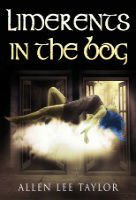 |
| 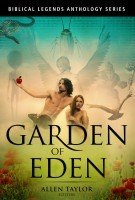 |
| 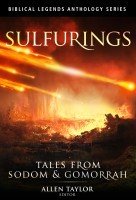 |
|  |
|| At Amazon | At Amazon | At Amazon | At Amazon |



Review Me, Please
While you're here, check out the backside 5 (my five latest posts):
- Don't Look Now, But That Yahoo Done Went Crypto
- 5 Things You Should Know About Fundition
- Pay It Forward Curation Contest Entry for Week #22
- Farmpunk Fiction Contest, the Second
- Poetry Sunday: 'If I May Take Thy Hand' (A Modified Sestina)
A sampling of fiction links:
- Farmpunk Fiction: Altland's Gambit
- Memorandum of the Ministry of Silly Putty
- My Secret Life as a Garden Gnome
A sampling of poetry:
Steem Monsters stories:

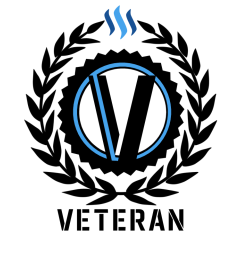
created and used by veterans
with permission from @guiltyparties

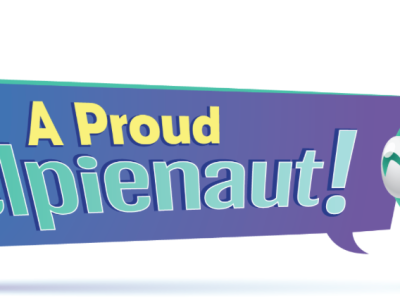
Like you, I feel like I have more of a problem figuring out WHICH THING to write. I can always write... although sometimes I feel 'stuck' in the fiction realm, it's usually because I've talked myself out of something or discouraged myself from something because I feel it isn't 'good enough'.
This is a fantastic post. I have lists and lists (and google keep 'folders' and scriviner folders) of things to write, topics, story starters, ideas, etc. I just need to stick with it. Thank you for the encouraging post!
You're welcome. I'm glad it helped.
Good read. Yes you keep putting out good things I just wish I had the time to try to write more steemit has made we really enjoy it.
You're doing great. Keep doing what you're doing.
Excellent suggestions. I use Stackedit to keep a list of ideas and to also keep an archive of all of my posts. Like you, I have way too many things to write about. I think the biggest challenge is balancing my time vs. the rewards. The direct rewards paid in steem (including all three forms together), especially for my most successful posts, simply don't justify the amount of effort put into the posts. I can put that same effort into other endeavors and get far bigger returns (albeit perhaps a bit delayed). That means that I look for either very short and quick things to write for Steemit, or I write longer pieces if I think they can get value in other ways. For instance, I use my visualization posts as part of my class and also has a means to publicize the class. That helps justify putting more effort into a post. That said, I'd like to see a steem-like platform based on proof-of-brain that supports evergreen content. Some combination of Steem and Stackexchange would likely work well.
Proud member of #steemitbloggers @steemitbloggers
That looks like an excellent tool (Stackedit). I'd never heard of it, but I can see it being useful. Can you post to Steemit with it, or do you copy/paste?
Yes, balancing time with rewards is certainly a challenge. I agree the rewards are not worth the time, right now. I can easily spend two hours on a post. I've been known to spend four. The shorter, or previously written ones, may only take an hour. But then I spend an hour sharing them all on my various Discord channels. So it does take time. The way I see it, the time put in now will lead to greater rewards down the road. Like building a business. You put in 60-80 hours a week the first few years. Over time, you trade the hours for more compensation. By the time you retire, the business is running itself and you're living on residuals. At least, that's the way it's supposed to work.
You don't think Steemit supports evergreen content? I think it could, if people were writing it.
Isn't StackExchange a Q&A site, like Quora? I think I get what you mean. Communities. It would be nice to have built-in communities instead having to work all the Discord channels. If they could take that idea of communities built around specific interests and integrate that into Steemit, then that would add a whole new level of content to the platform and give users plenty more opportunities for earning rewards. That would be awesome.
There is another blockchain-based social media platform currently in the works called Narrative. It will be built around those types of communities. It's looking like it's going to get some pretty decent early support. Have you heard of it?
A great piece, but no help to me. As is true for you, ideas flow. My husband suspects I have a perpetual electrical storm in my brain. My problem is in writing fluidly. That you obviously do without effort.
I write, and write again. I chip away, winnow down, sometimes start over. It's not just perfectionism. It's honest assessment. Usually the end result is acceptable, but oh, the path to get there.
Your blog is full of great ideas for people who don't have electrical storms:)
Thanks. I've read your writing. You make it look easy. And I, too, do my fair share of editing. Polish, polish, polish. That's my mantra.
Your writing seems to flow effortlessly.... I guess that's what a writer strives for: hide the seams:)
Thanks for the compliment--I'll have a little more confidence as I pull out the keyboard today.
Amazing read. This one.
I have been following this method for a while now. So I guess the problem of figuring out a topic to write about is eradicated. Now, I just go on my stick note where I keep them and pick the ones that I feel like working and and get to it.
The problem I am faced with is time. Since a lot of my posts aren't just creatives, I have to make some research on them, it requires time. Hopefully, a better understanding of time management would help.
This post should be seen by more people.
Resteemed.
Yes. Time management is very important. It's not easy. You do have to make sure you have time to develop an idea before you start on it. That's important. Otherwise, you end up with incomplete projects, and that can be discouraging.
true, sir
So far, I didn't experience it either! I am always complaining that I have not enough time to write all the things I wish to write. I have more than a dozen of small notebooks with "ideas" as I always carry one around to jot down my thoughts. Some of them I revisited and developed into a poem or a short story, others I just waiting to be picked up.
Sometimes I use an app on my phone to write some ideas or if I am at home, I write them on my File. And obviously some ideas come in the most unexpected moments, like when I'm in the shower, laying down on my dentist's seat, driving or having my both hands busy.
Yah, I love the shower ideas. And driving is always a good time to brainstorm.
I do something similar, I have a bunch of folders where I put my drafts for unfinished articles. Each draft sits in its own folder and I'll add images to them to accompany the future article.
That way, I never run out of ideas :)
Excellent idea. Glad to hear it's working for you.
This post has been selected for curation by @msp-curation by @sunravelme. It has been upvoted and will be featured in this week's Working Title post. It will also be considered for the official @minnowsupport curation post and if selected will be resteemed from the main account. Feel free to join us on Discord!
This is very helpful, and something I'll have to try. I follow the advice I picked up in NaNoWriMo about just getting it down and not worrying about it, editing the idea can come after it's all out on the page. But sometimes I just don't know where to start and that's what frustrates me.
Thank you for sharing your technique. Hopefully this will help to get me out of my writing funk.
Yes, getting it down once you start writing is important. I think that's a good strategy. Edit later. But to get to there, as you pointed out, you have to start, and that requires finding something to write about. A writing notebook can help, or a folder on your computer's hard drive where you keep idea clippings.
Go forth and conquer the writing bears!
This is really interesting, I write less than what I want but I can relate to the struggle when I paint. It's good to hear that you find helpful writing tiny bits to never get blocked, I found myself writing some ideas right before sleep and some time after I would try to make it work.
Thanks for sharing!
That's good too. Make a regular practice of writing at a specific time of day and you'll be able to do it all the time. I've done it like that too.